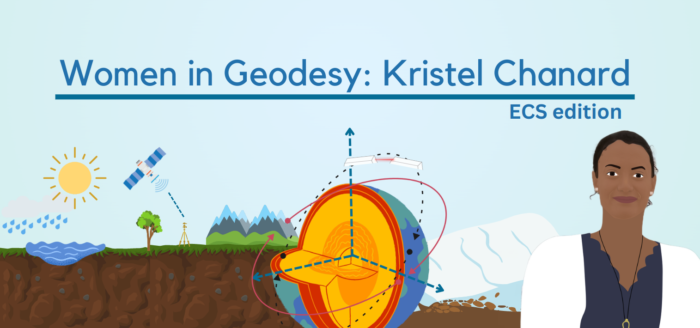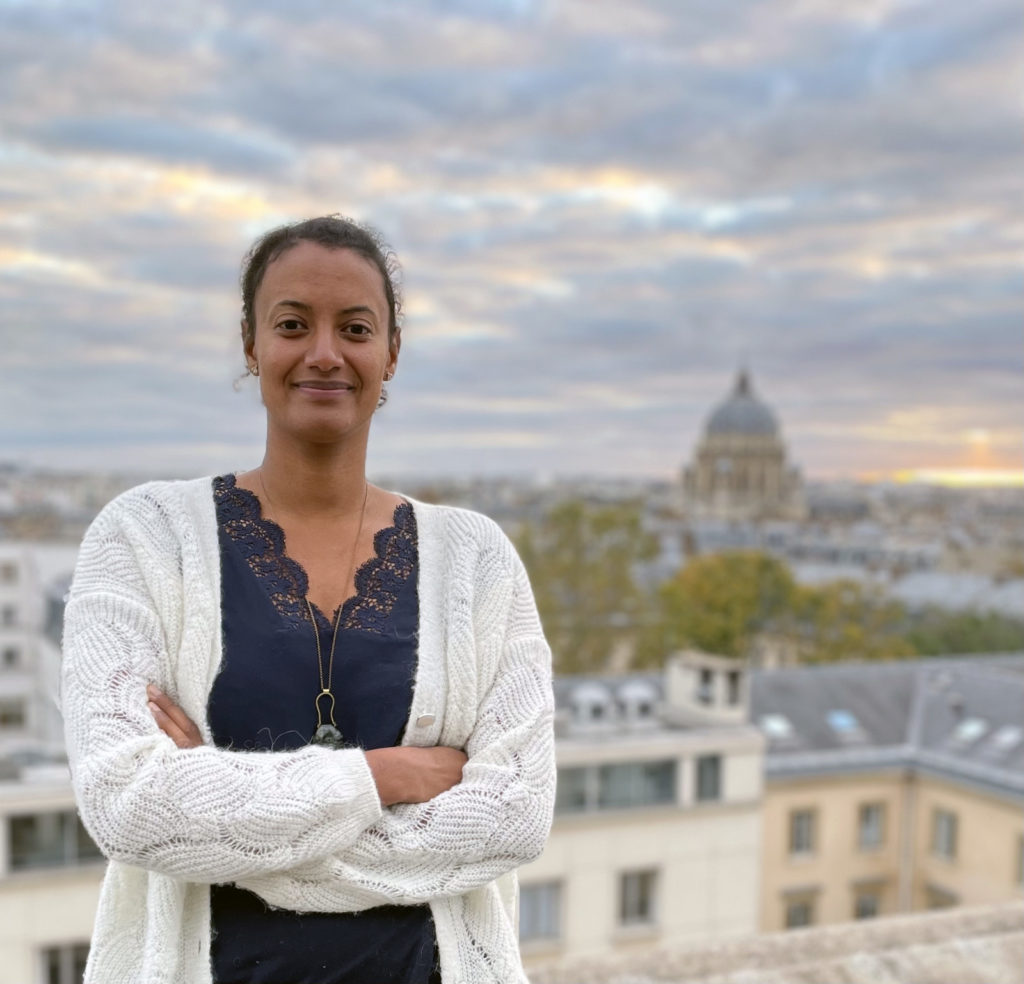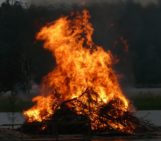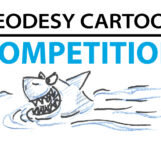
I hope you are ready to be inspired because we have another exciting interview, with Kristel Chanard, our Outstanding Early Career Scientist Awardee of 2022. I promise that her answers will encourage you to pursue a career in science or continue to that!
Her answers remind us again that we need to make geosciences more inclusive and diverse. So, let’s leave the spotlight to Kristel and hear what she would like to share with us!
I hope that being a scientist becomes a possibility for everyone in the room.
Would you like to share your thoughts about what being a woman in science means to you?
I used to believe that being a scientist had nothing to do with being a woman or a man, from an over- or under-represented group, but rather with being curious and passionate about science. But if you start wondering whether this is true in academia, you quickly realize it might not yet be the case. That’s why to me, being a woman in science is not anymore only about contributing to advances in research and technology, it is also about advocating for equality and representation in my field. After all, I likely owe my opportunity to pursue a scientific career to women who broke down barriers before and paved the way for my generation. It’s inspiring.
Was there an influential woman in your life (both inside the family and outside the family) who impacted you in a way to become a scientist?
While there were definitely women in my life who inspired me to dream big, I cannot pinpoint to a particular woman who influenced me to become a scientist. To be honest, it was difficult to relate to scientists who did not look like me. That’s why one of my favourite things to do today before visiting classrooms for science outreach is to ask kids to draw what they think a scientist looks like. Drawings often show an older man with glasses, crazy hair and test tubes. Eventually, when a diverse group of scientists shows up, I hope that being a scientist becomes a possibility for everyone in the room.
We also have a responsibility to make science more inclusive, and that includes breaking down stereotypes and biases that may discourage under-represented groups from pursuing science
You’re one of the Vening Meinesz medalists/Outstanding ECS. We would like to hear a bit about your studies and what’s coming next.
First of all, what an honour and a surprise to have been awarded the Geodesy Outstanding ECS award! It definitely encourages me to keep focusing on understanding how the Earth’s shape, gravity field and rotation change in response to variations in continental hydrology, atmospheric and oceanic loads. I find this question fascinating because answering it offers scientific and societal perspectives from inferring rheological properties of the Earth to monitoring the evolution of water resources. In the coming years, I plan to keep trying to find new ways for geodesy to monitor the evolution of freshwater resources, with a focus on aquifer systems, glaciers and ice sheets. I am also involved in an exciting interdisciplinary project that aims at reconciling measures of rheological behavior from mineral to global scale, and from seconds to millions of years. Specifically, I will use geodetic observations of the interplay between hydrology and the solid Earth to probe the rheological properties of the Earth at original timescales. Finally, because a large part of my work is based on geodetic observations, I will continue working within the research team responsible for the International Terrestrial Reference Frame (ITRF). We are constantly seeking ways to improve its realization, as it provides the basis for all modern positioning, orbit determination, and Earth orientation measurements. I am excited to continue pursuing research in this interdisciplinary field and hope to, modestly, contribute to our understanding of the Earth’s dynamic system.
Can you give us some names of women in science (dead or alive) who inspire you?
As I began considering an academic career, women scientists were a rare sight during my studies but I was lucky enough to cross paths with Luce Fleitout and Hélène Lyon-Caen. Not only do they demonstrate that women can excel in science, but they also can advocate for equality and diversity in the field.
Luce Fleitout has been a mentor to me and to many students and young researchers. Although she has never actively sought the spotlight, her influence has been profound across many disciplines of the Earth Sciences. Beyond her exceptional contributions to the understanding of Earth’s deformation, tribute must be paid to her exceptional scientific rigour and integrity. Her willingness to get to the bottom of every single equation, approximation, or observation, her limitless curiosity for the natural world and the laws of physics is exemplary and praiseworthy. Luce is a testament to how good science should be done and continually encourages me to uphold her values in an increasingly tough and competitive research environment.
Although I did not have the opportunity to work directly with Hélène Lyon-Caen, her mentorship has set the groundwork for many students like me to develop a strong set of values in academia through discussions over coffee or lunch. She encouraged us to pursue research with the same level of scientific ethics and integrity as she did. Furthermore, she has long been a behind-the-scenes advocate for gender equality. That is something that I think is frequently overlooked in research, and it is inspiring to see a well-established researcher emphasizing those principles. She has definitely played an important role in my scientific journey by inspiring me to follow in her footsteps.
What message do you want to pass on to women and girls who want to pursue a career in science, more specifically in geodesy? Maybe a comment on how we can make science more accessible to young women and girls?
If you are a woman or girl who wants to pursue a career in science, my message to you is: go for it! Science needs more diversity and we need your unique perspective and skills. Of course, there may be challenges and barriers to overcome, but don’t let that discourage you. As researchers, we can do our part by being role models and mentors, providing guidance and support. We also have a responsibility to make science more inclusive, and that includes breaking down stereotypes and biases that may discourage under-represented groups from pursuing science as well as promoting diversity and equity in our research groups and institutions.

Figure courtesy: Kristel Chanard
We would like to thank Kristel Chanard for her time to answer our questions and for being a voice for women and future girls in science. We hope that these answers gave you the courage you needed!
Stay tuned for more…


